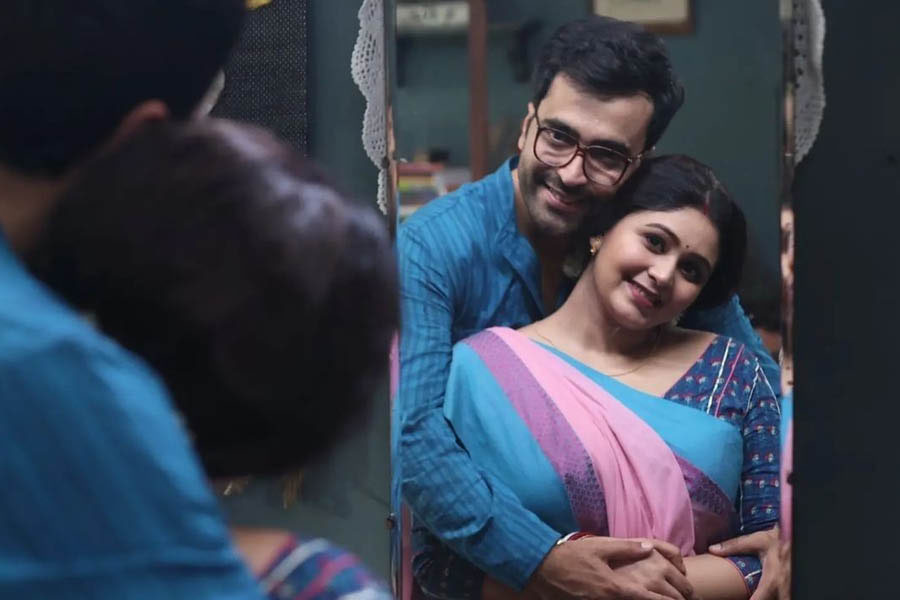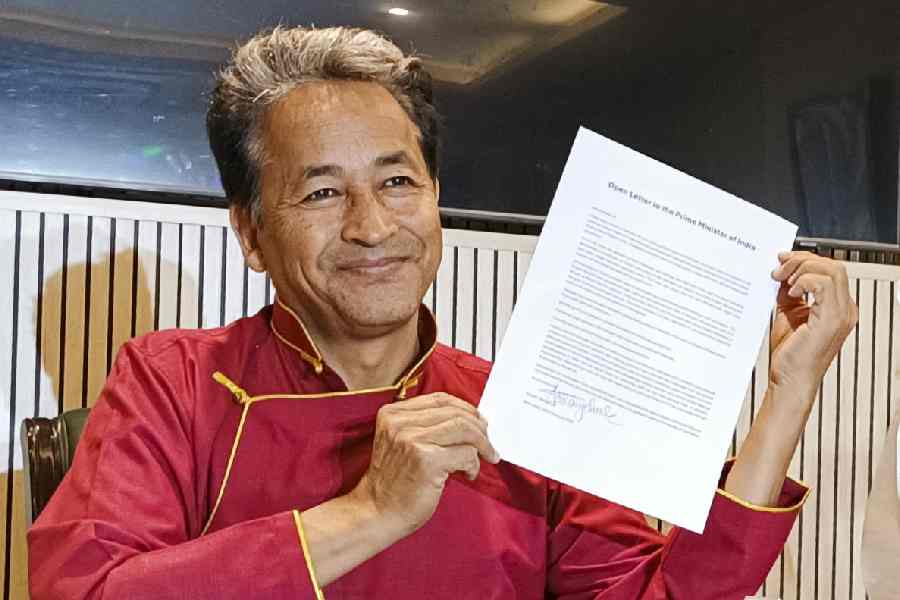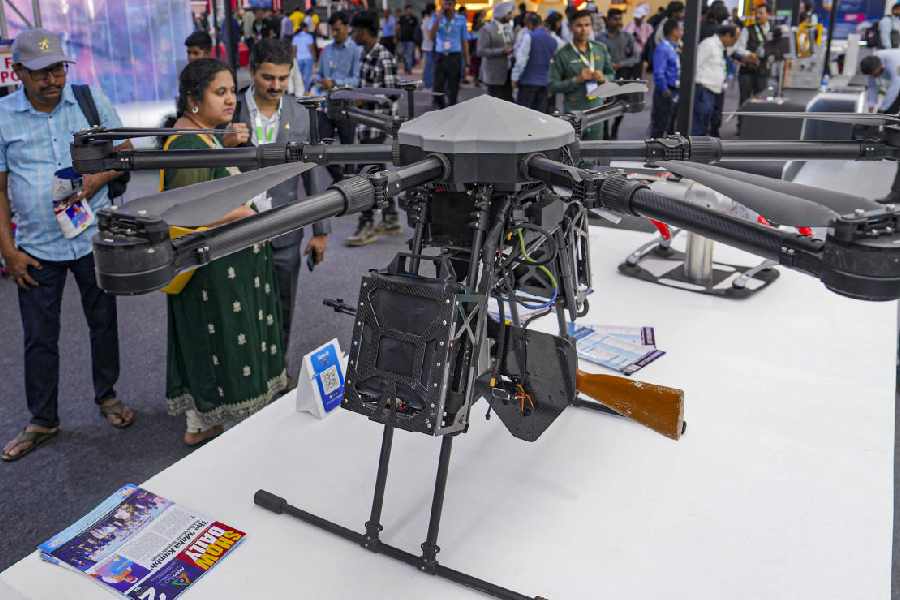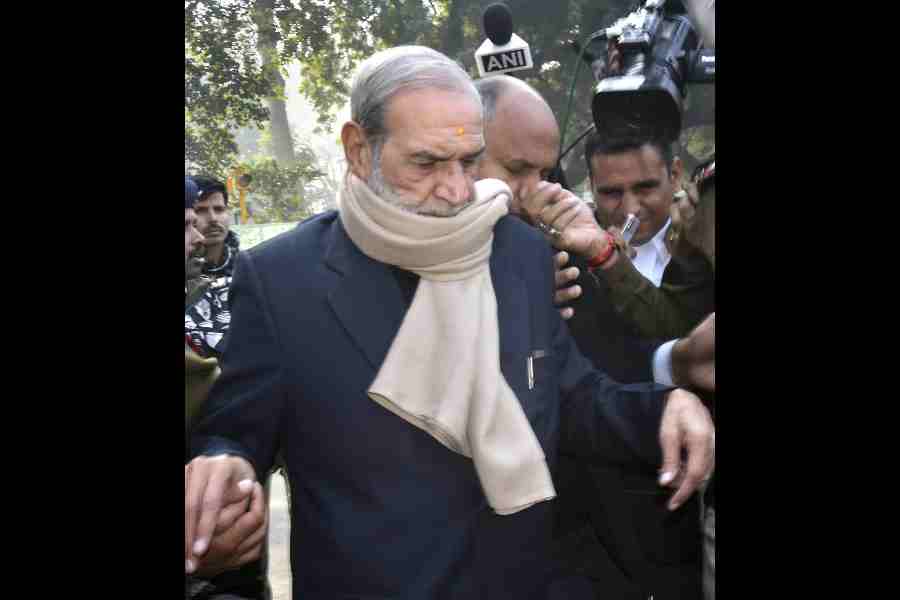‘Amra mota hotey pari, kintu amader jibon ta motamoti noy fatafati (We can be fat but our life isn’t mediocre, it is magnificent)’ — a lot of us wish this was true and it is a tagline we want to live up to, but even with body positivity becoming a woke concept it is a struggle to achieve.
Just like Phullora Bhaduri (Ritabhari Chakraborty) of Dhulisohor in Aritra Mukherjee’s Fatafati, who might have said this line with a lot of bravado when called fat but who struggles to make it a reality. What is so fatafati about being called out for her weight at the doctor’s chamber? What is so fatafati about having a mother-in-law who takes constant digs at her for her weight? What is so fatafati about random strangers calling you various words for fat? Not much really.
Fatafati, starring Abir Chatterjee as Phullora’s husband Bachashpati, is a film about a small-town seamstress who wants to design glamorous clothes. A plus-size woman, most of Phullora’s clientele is also plus-size women who want to be stylish. She has a mean mother-in-law, an adoring brother-in-law and a doting husband who is the epitome of a nice guy. When her brother-in-law creates an Instagram account and posts one of her diary entries about body positivity and fashion, it goes viral, launching Phullora as a fashion influencer called Miss Fatafati.
Unlike Sonakshi Sinha-Huma Qureshi-starrer Double XL — another recent film about plus-size women which was more about moneyed plus-size women’s right to eat what they want, have fun and find thin boyfriends — Fatafati is more nuanced. There is an awareness that not all fat women are unhealthy, that losing weight is not about looking good but being fit, that following fad diets can have negative consequences, and that even unconditional love does not take away the shame we feel about our bodies.
But while some of the circumstances are rooted in reality — a rickshawwallah might not call you a ‘dhyepshi’ but I have seen a man look pointedly at the sliver of seat left next to a large woman in an auto seat and say ‘I’ll take the next auto’; I have heard a shopkeeper say ‘thigh gulo dekhechhish’ (have you seen the size of her thighs) as I have walked past in a pair of shorts — much of Fatafati falls prey to stereotyping.
All the fat women in the film are good people with hard lives. There is one thin woman, Bikiranbala aka Biki (Swastika Dutta), who is all kinds of evil rolled into one. She is mean, she lies, she is crude, she flirts with other women’s husbands and does not have a single redeeming quality or a backstory about why she is the way she is. The character is loud and obnoxious enough to wish for a mute button for her portions.
One is forced to ask — what about fat women being jealous of other fat women who gain success, especially in a body conscious field like fashion? Also, why is the man who beats up one of the fat women Rinkudi, played really well by Arijita Mukhopadhyay, also thin? Don’t fat men beat their wives?
Also, most of the body shaming in Fatafati is over the top and dramatic to feel authentic, whether it is Biki saying ‘mota der shathe ami haati na’ or the mother-in-law saying ‘haati r pithe shuto blouse pora chhuto’ while holding up a strappy blouse made by Phullora. In reality, body shaming is more toxic because it is garbed in “concern”. No one in today’s society would call you fat on your face, even in a small town like Dhulishohor. It is more subtle digs than outright vitriol and that is absent in the film.
Ritabhari is a revelation, not just because of her commitment to putting on weight for the role but also her genuinity in playing the character. Abir is also extremely believable as her loving husband. In the end, one can take solace in the fact that Fatafati is a commendable effort to raise awareness about body positivity.










